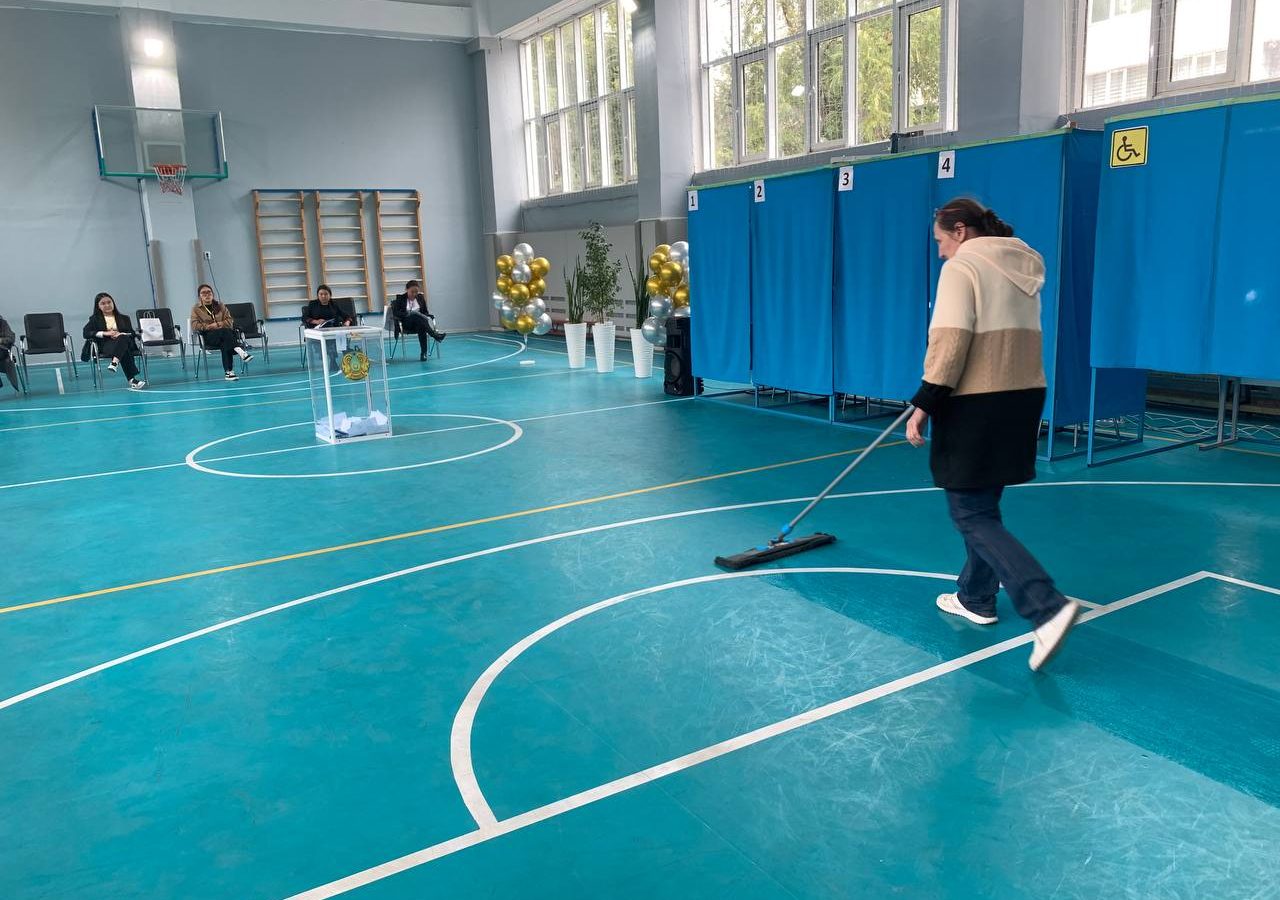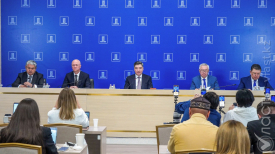- ВКонтакте
- РћРТвЂВВВВВВВВнокласснРСвЂВВВВВВВВРєРСвЂВВВВВВВВ
According to official data, 71.1% of the voters said they agreed to the construction of Kazakhstan’s first nuclear power plant at a referendum on October 6. The Central Election Commission said the turnout stood at 63.7%. Analysts have questioned both the overwhelming “yes” vote and the turnout numbers. Independent observer groups told the press they had recorded a number of gross violations of the electoral procedures, including ballot stuffing. Dozens of activists campaigning for the “no” had been arrested in the days before the referendum.
After casting his vote, Kazakhstan’s President Kassym-Jomart Tokayev said he would like to see the plant built by a consortium of foreign companies. Deputy Prime Minister Roman Sklyar later clarified that the consortium should include at least five countries and will be set up in 2025.
The government asked for an additional 2 trillion tenge ($4 billion) from the National Fund to finance the budget, the Central Bank chief Timur Suleimenov said on October 11. The government has ramped up the use of its “rainy day” fund in recent years, thus concealing an ongoing budget crisis.
As the official currency conversion approaches the 500 tenge for $1 level, the Central Bank said on October 11 that the demand for US dollars had pushed up prices, but a planned sale of US dollars from the National Fund this month would likely re-balance the exchange.
On October 11, the Central Bank decided to keep the base interest rate at 14.25%. A lukewarm inflation trend prompted “moderately tight monetary conditions,” the regulator said. Only with a stable slowdown in inflation, the interest rates will be gradually reduced, according to the Central Bank.
Two Russian companies, Tethys Capital (also spelled Tetis) and Balance Asset Management, bought on October 11 the 13.1% stake in Kazakhstan’s Stock Exchange (KASE) previously owned by the Moscow Stock Exchange (MOEX). Due to ongoing Western sanctions, MOEX decided to divest from KASE, according to Suleimenov. The two Russian asset management companies are tied to businessmen Oleg Belay and Vitaliy Balanovich.
Rinat Zaitov, a deputy of the ruling Amanat party, said on October 10 that the feminist NGO Feminita should be put on the list of extremist organizations. Earlier on the same day, another group, the Union of Parents, disrupted an event organized by Feminita, prompting the organizers to call the police. The officers, however, identified the attendees and briefly detained one of Feminita’s co-founders. Representatives of Feminita, which advocates for women and LGBT+ rights, said they filed a suit against the Union of Parents for “hooliganism”.
Wildfires rampaged for a few days through the Karaganda and Pavlodar region on October 6. One firefighter was killed during the process. Wildfires routinely occur in the summer and fall months across the central and northern part of the country.
Two workers were killed due to a carbon monoxide emission at a mine in the Karaganda region on October 7. The copper mine, Sayak-3, is owned by Kazakhmys, one of the country’s main metals company. Fatal accidents in the mining industry have increased in recent years.
Five children were killed in a house fire on October 11 in Zhitikara, in the northern Kostanai region. Their mother had left the house, their father was in prison. In 2019, a fire killed 5 children in Astana while their parents were working double shifts, an event that sparked a number of public protests by a group representing “mothers of multiple children”.
The ministry of energy and other government institutions will impose a ban on the export of fuel by rail starting on November 7. A ban on fuel exports via road is already in place and due to expire also in November. The government also plans to renew the ongoing ban on export for compressed natural gas, a popular fuel option in the west of the country. Waves of fuel deficit routinely prompt the government to ban exports to satisfy domestic demand.
Maintenance work at the giant Kashagan offshore oil and gas field led to a 60% reduction in production, the ministry of energy said on October 8. The planned maintenance period had become a bone of contention between the ministry, which controls the country’s oil production plan, and the international companies involved in the consortium. The government is also currently involved in an arbitration spat with the Kashagan consortium, reportedly seeking $160 billion in back payments.
A court in Bishkek sentenced on October 10 the director and a presenter of Temirov Live, one of Kyrgyzstan’s few independent media outlets, to six and five years in prison respectively. Makhabat Tajibek kyzy and Azamat Ishenbekov were on trial along with other colleagues, two of whom were given suspended sentences, in a move that targeted specifically the popular YouTube channel. Gulnoza Said, the Europe and Central Asia program director at the Committee to Protect Journalists, said Kyrgyzstan “entered a dark new page in its history”.
Nine journalists filed a lawsuit on October 9 against the ministry of information over the new accreditation rules, which they deem unfair. The journalists also point out that some of the regulations included in the new media law contradict existing legislation and article 20 of the Constitution, which protects freedom of speech.
Поддержите журналистику, которой доверяют.








